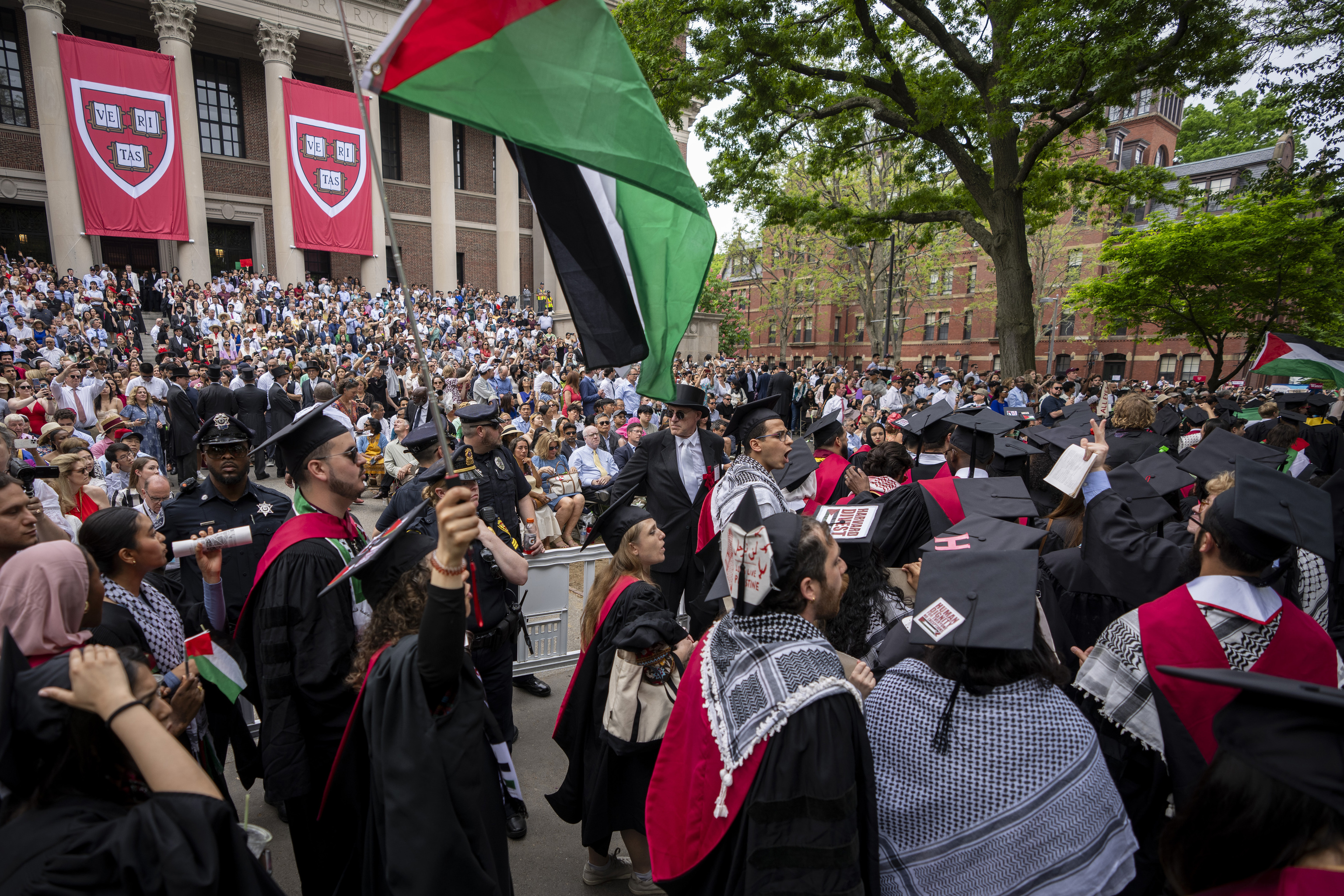Some students chanted "Let them walk, let them walk" during Thursday's commencement, referring to allowing those 13 students to get their diplomas along with fellow graduates.
Student speaker Shruthi Kumar said "this semester our freedom of speech and our expressions of solidarity became punishable," she said to cheers and applause.
She said she had to recognize "the 13 undergraduates in the class of 2024 who will not graduate today," generating prolonged cheers and clapping from graduates. "I am deeply disappointed by the intolerance for freedom of speech and the right to civil disobedience on campus."
Over 1,500 students had petitioned, and nearly 500 staff and faculty had spoken up, all over the sanctions, she said.
"This is about civil rights and upholding democratic principles," she said. "The students had spoken. The faculty had spoken. Harvard do you hear us?"
Those in the encampment had called for a ceasefire in Gaza and for Harvard to divest from companies that support the war.
Commencement speaker Maria Ressa, a journalist and advocate for freedom of the press, told the graduates that "you don't know who you are until you're tested, until you fight for what you believe in. Because that defines who you are."
"The campus protests are testing everyone in America. Protests are healthy. They shouldn't be violent. They shouldn't be silenced," she said.
Asmer Asrar Safi was one of the 13 students blocked from receiving a diploma Thursday. The penalty shows how far the school will go to silence voices that challenge their donor base, he said.
"While we will not be returning to this school, we hope that our friends carry the liberatory legacy of the Gaza solidarity encampment alive, and strive even harder for divestment," he said in a written statement.
Alaha Nasari, who graduated with a degree in the history of science and global health, said she and other students opted to walk out of the ceremonies when interim President Alan Garber took to the stage.
"I think that the lack of faculty support has been one of the most disheartening aspects of being a student protester," she said.
Also on Thursday, the presidents of Northwestern and Rutgers universities defended their decisions to end pro-Palestinian encampments through negotiations rather than police force, telling the House Committee on Education and the Workforce that they defused the danger on their campuses without ceding ground to protesters. The hearing was part of a series examining how colleges have responded to allegations of antisemitism.
The decision by Harvard's top governing board follows a recommendation Monday by faculty members to allow the 13 to receive their degrees despite their participation in the encampment.
However, Harvard's governing board said that each of the 13 were found to have violated the university's policies by their conduct during the encampment protest.
"In coming to this determination, we note that the express provisions of the Harvard College Student Handbook state that students who are not in good standing are not eligible for degrees," the Harvard Corporation said in a written statement.
The statement left open the possibility of an appeals process.
Supporters of the students at Harvard said the decision not to allow them to receive degrees at commencement violated a May 14 agreement between Garber and the Harvard Out of Occupied Palestine coalition that would have allowed the students to graduate.
